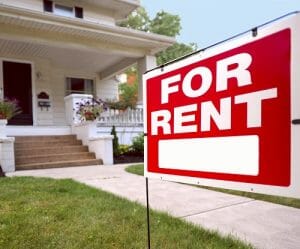Renting Or Buying Property Abroad

Things to be taken into account include: the expected length of stay; local market factors; whether you are travelling alone, as a couple or as a family; available budget; whether you are financing the cost yourself or being funded by your employer as part of your benefits package.
Whether you plan to rent or buy, it is important to research the property market in your planned new home location to understand your options and it is worth contacting property agencies in the area to explore prices and the style of properties available. Wherever practical an orientation trip is a great opportunity to identify your options and narrow down the areas that are likely to be most appropriate for you to live.
There are generally a number of options:
- Serviced Apartment– For some this lifestyle with all the facilities provided and an active community of like-minded people in the building can be very attractive. Where the cost is manageable this can be a very viable option, especially for those who are unaccompanied on their assignment or move abroad.
- Purchase – For expats who are on an assignment or job with a definite end date it can be a high risk strategy to purchase. The main risk is that when you have to leave at a defined time you may have to sell at a disadvantageous time in the market cycle. There is also always a risk that circumstances may require you to return to your home country sooner than expected (family emergency, unsuccessful assignment or project etc). If you are planning to stay for a longer period or have moved with the specific intention of investing in property as part of a change in lifestyle you will need to ensure that you understand the market and the risks and opportunities you face. See our Buying Property in…. series of articles.
It will be important to check the regulations locally as in some countries only local citizens are able to purchase property. There may also be tax implications of buying in terms of the gains made when selling the property or by changing your status in your new home country or back at home. It is vital to take appropriate qualified advice on all such implications before committing to a purchase.
- Rented Accommodation– Renting a property is generally the most popular choice for expats planning to return home after a few years. There will generally be a wide range of choices to suit most situations, but these may be very different from what you are used to in your home country. Houses are not an option for cities like Hong Kong or Singapore and where there are houses the climate or city location can mean that there are very different options available at very different prices.
It is often possible to choose between furnished and unfurnished and identify the most appropriate residential area in the centre of the city or further out. In some countries the minimum term for unfurnished rentals can be longer, which may not be sufficiently flexible depending on how long you are due to stay in the country. The advantages of renting will generally include the ability to match the term of the rental to the length of your expected stay and not having the liability to deal with maintenance and equipment faults.Identifying your options before you leave will help to assess whether to take furniture with you or rent a furnished house or apartment. The costs of any shipping or storage will be part of the calculation required to assess your best options.
The arrangements for renting accommodation will vary from location to location, with online search facilities a good way to identify the range and price of properties in the area you are moving to. Estate agents and realtors will be available to help you find a suitable home in most places. The deposit required to be financed and any fees payable to the agent should be understood before committing to a rental.